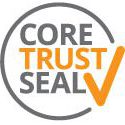- Submit data
- Data citations
Data citations and DOIs
The BODC 'Published Data Library' (PDL) provides formal publication of datasets with a Digital Object Identifier (DOI). BODC publish their DOIs with DataCite, using a Natural Environment Research Council (NERC) Environmental Data Service (EDS) account with the British Library. As such all publications will adhere to DataCite schema and adhere to NERC DOI guidance.
The rationale behind the PDL
Initially there was pressure from the scientific community to provide a mechanism by which generators of data could be acknowledged for the work they do. The idea of formal data publication was started and implemented through the DOI service in 2012 at BODC. This service for citation has been backed up by the FAIR principles and journals encouraging data to be stored in appropriate repositories i.e. two Nature editorials in 2016 and 2019. Due to developments such as the FAIR data principles DOIs do not just provide attribution of credit but shouyld also support traceability and transparency of data which in turn supports scientific integrity.
The BODC DOI process provides a static snapshot of a dataset at that point in time. For data to recieve a DOI by BODC we encourage:
- All data to be provided. Not just data points behind the graph but an entire dataset with appropriate flags for suspect data.
- Data to be a snapshot in time and no expect to change repeatedly. There are circumstances where this is not possible i.e. dynamic DOIs
- Abide by NERC DOI guidance
BODC have always understood data (particularly their metadata) are often a dynamic concept and can be updated. Versioning and changes to data need to be managed carefully, with regards to citation. The PDL is just one part of the solution to citation, the wider integration of BODC infrastructure will be used to support citations, the FAIR and TRUST data principles as technology and requirements develop. BODC work with wider data communities such as the NERC EDS, MEDIN and Research Data Alliance to ensure citation is fit for purpose going forward i.e. complex citations.
If there are any queries about the above we encourage originators to contact us.


